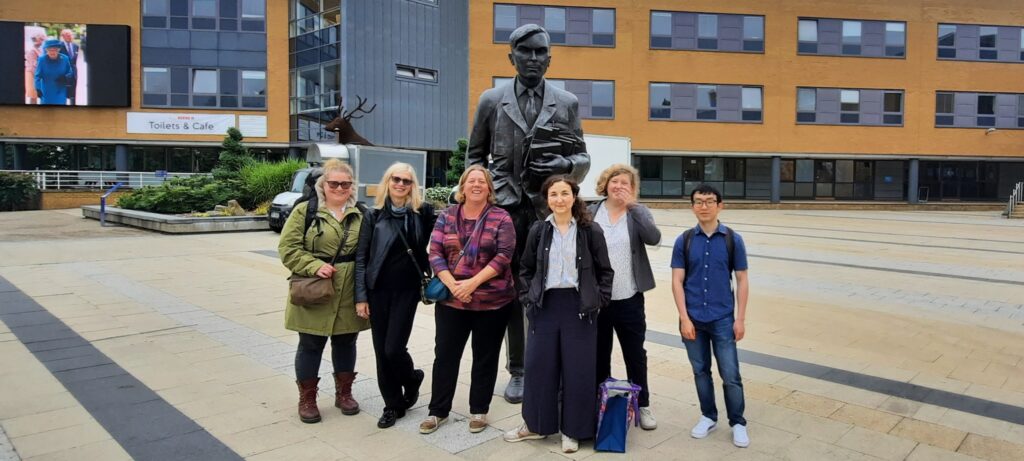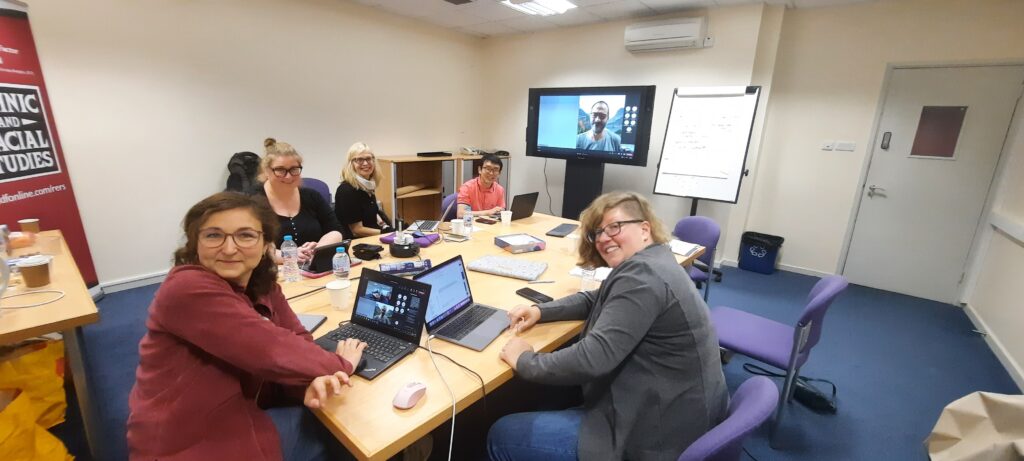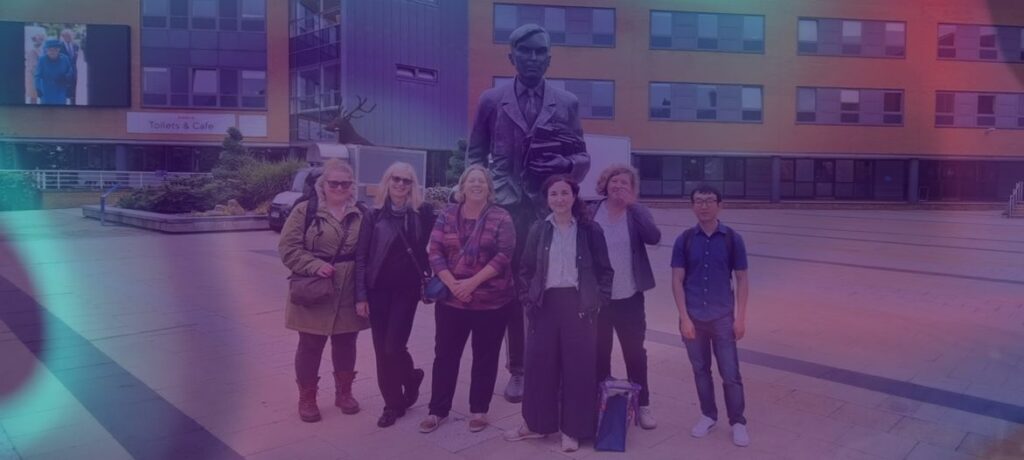Working Group 8 Meeting – Language variation, pragmatics and interaction, University of Surrey, UK, 15th and 16th September 2022, funded by the COST Action Language in the Human-Machine Era
Organizers: Doris Dippold & Miriam Lind
Other Participants: Miriam Lind, Marcelo Yuji Himoro, Giedre Valunaite Oleskeviciene, Vicky Garnett, Rita Vallentin, Natalia Palou, Antonio Pareja Loro, Bettina Migge, Lina Mavrina, Netaya Lotze, Anna Konstantinova, Rui Manuel Sousa Silva
Alan Turing is often described as the father of computer science, or the father of modern computing. His family home was in Guildford, Surrey, which is the home of the University of Surrey today. It was only fitting, therefore, that WG8 of the Cost-Action LITHME (Language in the Human Machine Era) held their Working Group Meeting in Guildford from Thursday 15th to Friday 16th of September 2022.
After meeting at the Alan Turing Statue, we started the meeting with short presentations by all present – both in person and online – about their research interests and priorities. We found that Working Group 8 has members with a very wide range of interests: some members’ research has focused on evaluating tools to tag language varieties, thus contributing to the documentation of minority languages. Another interest common to members of the group was how ‘common ground’, which in human-human interaction is usually established over a number of turns, can be modelled for human-AI interaction. In addition, many members share interests in the pragmatics of social interaction with text-based chatbots, humanoid robots and voice assistants.
On Thursday afternoon, we continued the discussion to draw out in more detail research ideas which could be pursued in the form of grant applications. This resulted in five basic strands. These include the creation of a corpus of human-computer interaction, a meta-analysis of human-computer interaction, research on conceptualisations of key terms such as ‘dialogue’ or ‘natural language’ by users and designers, issues of politeness in human-AI interaction and comparative studies of different speakers.
In addition, Sabine Braun, co-director of Surrey’s Centre for People-Centred AI, gave a short presentation on the newly formed institute. We found that the institute’s aims and research priorities mirrored many of the interests of WG 8 and other LITHME Working Groups.
After meeting in the evening at one of Guildford’s many lovely pubs to get to know each other better as a group, we started the next morning with an introduction by Surrey’s EU & International Bid Development Manager Maria Sega-Buhalis about Horizon Europe. We learned about Horizon’s major funding pillars and the 2023-24 draft work programme topics, many of which may be of interest to WG 8 and other LITHME Working groups, though it is important to wait until final topics are announced.
After spending some time on planning WG8’s book chapter for a planned edited volume on LITHME’s activities and research in language and technology, in the afternoon Diptesh Kanoija from the Institute for People-Centred AI gave WG 8 members an introduction on dialogue tagging. Given that most WG 8 members do not have a technical background, this was, whilst a taxing topic, well received.
The meeting closed with a short discussion of future plans for WG 8. We intend to soon restart our online seminar programme, with both academic and practical-focused presentations on the issues covered by WG 8. Details to follow soon!



